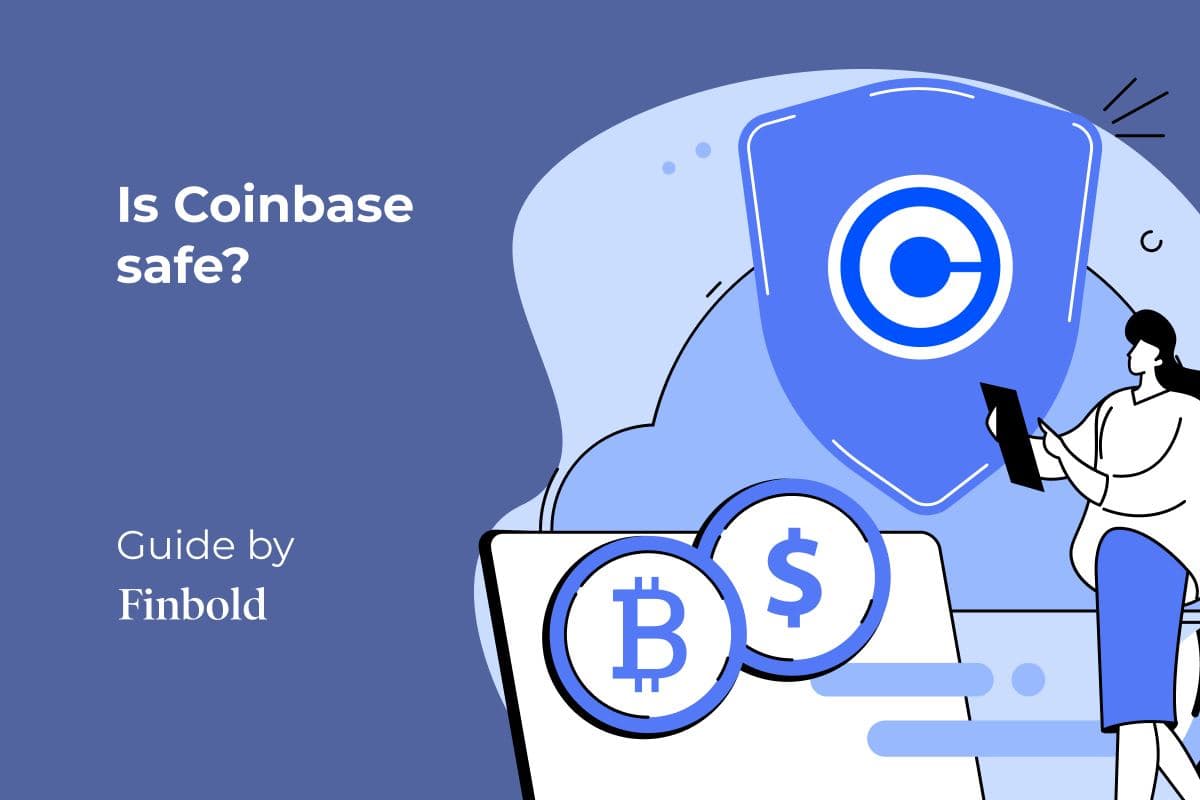No online platform, including Coinbase, can be considered 100% safe from all potential risks. However, Coinbase employs rigorous security measures, such as two-factor authentication, SSL encryption, and cold storage of assets, making it one of the safest cryptocurrency platforms available. It also complies with regulatory standards and is continuously enhancing its security protocols.

Comparing Coinbase with Other Crypto Exchanges
This section provides a comprehensive comparison between Coinbase and other major cryptocurrency exchanges. It focuses on various aspects including security features, user experience, range of supported cryptocurrencies, and the comparison of fees and transaction speeds.

Security Features Comparison
In comparing security features, we look at:
- How Coinbase’s security measures stack up against its competitors: This includes examining their respective approaches to encryption, two-factor authentication, cold storage of funds, and compliance with regulatory standards.
- Incident Response: Analysis of how Coinbase and other exchanges have historically responded to security breaches or threats.
- User Security Tools: Comparison of the tools provided by each exchange for users to secure their accounts, such as withdrawal whitelists, session management, and login alerts.
This comparison aims to highlight the strengths and weaknesses in the security frameworks of Coinbase and its peers.
User Experience Comparison
User experience is crucial in crypto exchanges. This section explores:
- Ease of Use: How user-friendly are the interfaces of Coinbase compared to others? This includes the ease of account setup, verification processes, and overall platform navigation.
- Customer Support: Comparison of the efficiency, responsiveness, and helpfulness of Coinbase’s support team versus other exchanges.
- Educational Resources: Evaluation of the availability and quality of educational content on each platform, which is vital for new users.
The goal is to understand how Coinbase’s user experience compares in the rapidly evolving crypto market.
Comparison of Supported Cryptocurrencies
This part examines the variety of cryptocurrencies each platform supports:
- Range of Cryptocurrencies: A comparison of the number and variety of cryptocurrencies available for trading on Coinbase versus other exchanges.
- Niche Offerings: Assessment of the availability of less common or emerging cryptocurrencies on these platforms.
- Market Update Frequency: How quickly do these exchanges list new cryptocurrencies after their launch?
The comparison here will offer insights into how Coinbase and other exchanges cater to the diverse needs of crypto traders.
Comparison of Fees and Transaction Speed
Lastly, this section focuses on two critical aspects for any trader:
- Fee Structure: A detailed comparison of the fee structures, including trading fees, withdrawal fees, and any hidden costs on Coinbase and other exchanges.
- Transaction Speed: Analysis of the transaction processing times, including deposit and withdrawal speeds, on Coinbase compared to its competitors.
Understanding fees and transaction speeds is essential for users to make informed decisions about which exchange best suits their trading needs.
Review of Security Incidents on Coinbase
Coinbase, one of the leading cryptocurrency exchanges globally, has maintained a strong reputation for security within the digital asset industry. However, like any major platform, it has faced its share of challenges and security incidents. This review examines historical vulnerabilities, major incidents, and how Coinbase has responded and improved over time, alongside a comparison with similar incidents in the industry.
Analysis of Historical Security Vulnerabilities
Coinbase has encountered various security vulnerabilities, primarily related to the broader ecosystem of digital assets and the inherent risks of operating within it. These have ranged from phishing attacks targeting users to more technical vulnerabilities within the platform itself. Despite these challenges, Coinbase has consistently acted swiftly to address vulnerabilities, often updating its community and enhancing its security measures to prevent future incidents.
Case Studies of Major Security Incidents
While Coinbase has largely avoided significant breaches thanks to its robust security measures, the platform has not been entirely immune to incidents. For instance, there have been instances where users’ accounts were compromised due to phishing or social engineering attacks. In each case, Coinbase conducted thorough investigations, reimbursed affected users where applicable, and implemented stricter security protocols to mitigate similar risks.
Coinbase’s Response and Improvements
Following any security incident, Coinbase’s response has been comprehensive, focusing on immediate remediation, thorough investigation, and long-term improvements. The exchange has invested heavily in security infrastructure, including the use of cold storage for the vast majority of assets, enhanced encryption methods, and sophisticated monitoring systems to detect and prevent unauthorized access.
Comparative Analysis of Similar Industry Incidents
Compared to similar incidents in the industry, such as the security breaches experienced by other exchanges (e.g., the Binance hack in 2019 or the Mt. Gox collapse in 2014), Coinbase’s incidents have been relatively minor and effectively managed. This success can be attributed to Coinbase’s proactive security measures, quick response to incidents, and transparent communication with its users. Furthermore, Coinbase’s regulatory compliance and insurance coverage offer an additional layer of protection that is not as prevalent in some other platforms.
Conclusion
Overall, Coinbase has demonstrated a strong commitment to security, continually evolving its measures to address the dynamic challenges of the cryptocurrency market. By learning from past incidents and leveraging advancements in security technology, Coinbase has managed to maintain user trust and set a high standard for security practices in the cryptocurrency exchange industry.
Security Guide for Coinbase Users
Basic Steps to Secure Your Account
- Enable Two-Factor Authentication (2FA): Use authenticator apps like Google Authenticator or Duo for a higher security level than SMS-based 2FA.
- Use a Strong, Unique Password: Create a password that is long, unique, and uses a mix of characters. Avoid using the same password across multiple sites.
- Regularly Update Your Software: Ensure your device’s operating system and the Coinbase app are up-to-date to protect against vulnerabilities.
Strategies to Avoid Scams and Phishing
- Verify Communication: Be cautious of unsolicited messages. Official Coinbase communications will never ask for your password or 2FA codes.
- Recognize Phishing Attempts: Be wary of emails or messages that pressure you to act quickly, offer too-good-to-be-true rewards, or direct you to unofficial websites.
- Use Bookmark for Coinbase Site: To avoid phishing websites, access Coinbase through a bookmarked link to the official site rather than through links in emails or messages.
Emergency Measures for Security Breaches
- Immediately Change Your Password: If you suspect a breach, change your Coinbase password and passwords on linked email accounts.
- Disable Account: Contact Coinbase support to temporarily disable your account if you suspect unauthorized access.
- Review Account Activity: Check your account for any unauthorized transactions or changes and report them to Coinbase support.

General Knowledge on Cryptocurrency Security
- Understand Cryptocurrency Risks: Be aware of the volatility in cryptocurrency markets and the risks of online wallets.
- Backup Your 2FA Codes: Store backup codes for two-factor authentication in a secure location to prevent lockouts.
- Educate Yourself on Security Best Practices: Regularly review materials and guides provided by Coinbase and other reputable sources on maintaining security and privacy in the cryptocurrency space.
Adopting these security measures and practices can significantly reduce the risk of security breaches and protect your assets on Coinbase.